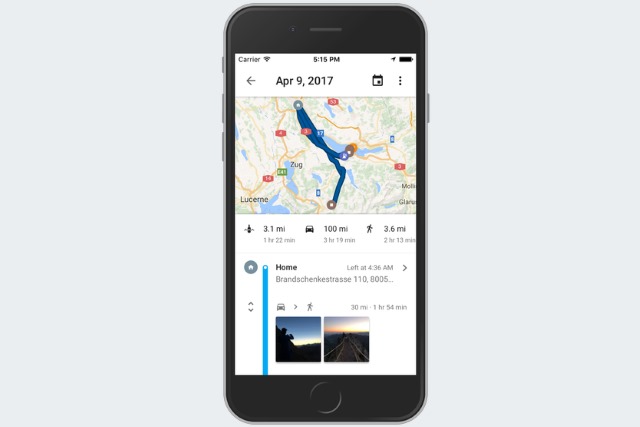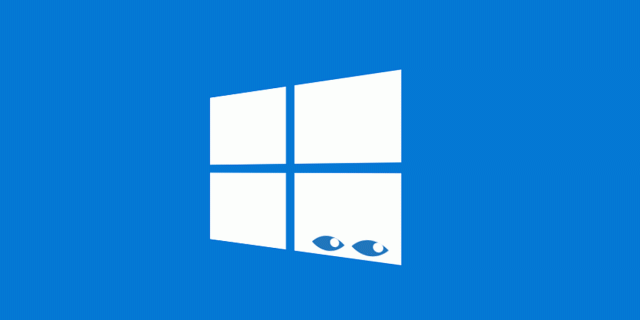
WikiLeaks reveals CIA's Weeping Angel tool for hacking Samsung TVs
WikiLeaks continues to release documents that reveal various hacking tools used by the CIA. After the HIVE revelations just over a week ago, the group has followed up with details of operations that were mentioned in the very first batch of Vault 7 leaks -- hacking Samsung televisions to listen in on people.
The documents suggest that the CIA's work is based on a tool developed by MI5 in the UK called Extending. The CIA went on to transform this into its own utility by the name of "Weeping Angel." WikiLeaks has published the guide to using the tool in a file marked "SECRET STRAP 2 UK EYES ONLY," and it describes how an implant is configured on a Linux PC before installing it on a target Samsung F Series smart TV.

Microsoft improves Gmail experience for Windows 10 Insiders, but there are privacy concerns
Microsoft's mobile Outlook app for iOS and Android is a really great email experience. It serves as a centralized place to aggregate your email accounts and calendar entries. The problem? It is a privacy nightmare. It stores your emails on Microsoft's servers, even when the email provider isn't Microsoft, such as Gmail or Yahoo. In other words, users must trade their privacy for convenience -- a bad deal if you ask me.
Today, Microsoft announces a new Gmail experience for Windows 10. While only available for Windows Insiders as of today, it uses the same concept as the Outlook mobile app, but for the Mail & Calendar apps. Microsoft will provide you with an arguably improved experience as long as you are OK with storing all of your Gmail messages in Microsoft's cloud -- yikes. What types of features will the new experience offer? Things such as tracking packages, getting updated on your favorite sports teams, and a focused inbox.

Bose faces privacy lawsuit over headphones that share listening habits with third parties
When it comes to privacy concerns, the mind naturally drifts to the likes of Facebook, Microsoft and Google. But in reality, there is the potential for privacy issues with any connected device -- and that includes Bluetooth headphones from Bose.
Illustrating this is a man from Illinois who has filed a lawsuit against the Massachusetts-based audio company for "secretly collecting, transmitting, and disclosing its customers' private music selections to third parties, including a data mining company." Kyle Zak alleges that his Bose QuietComfort 35 wireless Bluetooth headphones and the associated Bose Connect app gathered information about him, and sold it on to third parties including Segment.io.

Privacy: How to stop Google Maps' Your Timeline tracking where you go
We live in a dichotomous age in which we are more concerned about privacy than ever, while simultaneously handing over more and more personal information to the likes of Facebook and Google. With its Your Timeline feature, Google Maps provides us with a great way to keep track of the places we've visited, but it also means sharing a lot of very revealing data with Google.
You may well like the idea of being able to check to see which coffee shop you visited a year ago, or check how far you walked last Wednesday, but you may also like the idea of maintaining some grasp of your privacy. Here's how to disable Your Timeline in Google Maps and how to delete any records that have been saved already.

Managing compliance in the hospitality industry [Q&A]
Even for businesses in sectors like finance and healthcare where compliance and security is ingrained in the culture, protecting sensitive information is a major challenge.
For other sectors where it's incidental to the main business, compliance can be a major headache. With new payment card security requirements and other regulations like GDPR coming into force, businesses in sectors like hospitality need to up their game. We spoke to Geoff Milton, security strategist at data protection company ShieldQ to find out how the hospitality industry can overcome the headaches associated with compliance.

A fifth of UK firms hit by cyber-attacks, putting private data at risk
UK companies are ill-equipped to deal with cyber-attacks, a report by the British Chambers of Commerce (BCC) says. Nearly one in five smaller companies (18 percent) have fallen prey to cybercrime, and the figures are even worse for larger firms.
When looking at companies with more than 100 employees, the number that have been hit by cyber-attacks jumps to a staggering 42 percent. More than three quarters of the firms surveyed by the BCC did not have anti-hacking security measures in place, and most relied on third-party firms to clean up after an attack rather than having in-house solutions.

GDPR and what it means for businesses
The EU's General Data Protection Regulation (GDPR) comes into force in just over a year's time, but what impact will it have on business data protection efforts?
GDPR is one of the toughest pieces of data protection legislation in the world and will impose heavy penalties for non-compliance for any business around the world that collects or processes EU resident data -- even if the company is based outside the EU.

Migrating data to safe havens to protect customers' privacy
The events of the past month have pushed data privacy firmly to the top of not just the technology industry agenda, but also the political agenda.
In the UK, the government has been in conflict with the technology industry ever since David Cameron’s ludicrous call for a "ban" on encryption. However, in the last month the Prime Minister and Home Secretary have doubled down on this objective, demanding back door access to social media services such as WhatsApp -- despite widespread doubts as to whether the policy is even practicable.

Employees in the dark about data retention policy
Enterprises are increasingly bound by legal and compliance requirements to retain information and communications.
Yet a new study reveals that over half of office-based employees say their companies don't have written policies on data retention or personal use of work devices, or if they do, they aren’t aware of them.

How to disable all of Microsoft's ads in Windows 10 Creators Update
Pretty much since the launch of Windows 10 there have been complaints about ads and usage tracking in various forms. You might think that Microsoft would listen to complaints and consider removing ads from its operating system, but in fact more and more have been added.
We've looked at the various ads (or app suggestions, app tips and so on to use Microsoft's phraseology) that have cropped up over the last couple of years, but the release of Windows 10 Creators Update seems like a good time to revisit the topic. So here, once and for all, is how to kill all the ads (or whatever you want to call them) in Windows 10.

Brits willing to trade privacy for safety
Two thirds of the UK’s general public would feel more safe if digital communications were unencrypted, according to a new report by Cable.co.uk. The argument?
If the government could access our communications, it would be able to intercept messaging between terrorists plotting new attacks.

Microsoft half-heartedly opens up about privacy, revealing more about the data Windows 10 Creators Update collects
Microsoft has had something of a checkered history when it comes to privacy, particularly with Windows 10. Telemetry concerns have blighted the latest version of the company's operating system for many people, but now it has finally decided to come clean.
Ahead of the release of Windows 10 Creators Update, Microsoft reveals full details of the data it collects about users who opt into providing basic-level telemetry information. The company also provides some details -- but not as much as many would like -- about what is collected when the full level of telemetry is selected. This is Microsoft's attempt to come clean about privacy in Windows 10, but is it too little too late?

Hide your ID online with Random User-Agent for Google Chrome
Whenever you visit a website your browser hands over a user agent, a text string which tells the site about your browser, operating system, plugins and more.
This scheme was designed to help sites customize themselves to different devices, but user agents can be misused to help fingerprint your computer and track you online.

Trump signs resolution permitting ISPs to share your web history without consent
Donald Trump has forged ahead and done what privacy advocates hoped would not happen. The US president has signed a resolution rolling back FCC privacy rules, meaning that ISPs are now free to share and sell customers' browsing histories without express permission.
The signing of the bill into law comes after the Senate and then the House voted to allow ISPs to share customer data without consent. The White House has confirmed that Trump has reversed the Obama-era rules, so closely targeted advertising is now not far away.

Virginia Tech's DIALDroid shows Android apps steal data through secret collusion
Researchers from Virginia Tech have found that Android apps can work together to mine personal information from smartphones. While users have long been aware of the need to check the privacy settings and permissions for individual apps, few people will have thought of the potential for collusion between apps that, individually, have innocuous-looking settings.
A team from the Department of Computer Science at Virginia Tech's College of Engineering developed a tool called DIALDroid (Database powered ICC AnaLysis for anDroid) and used it to monitor the exchange of data between apps. Analysis of 110,150 apps over three years found that security and privacy is put at risk as information is shared between different, independent apps that users may have installed.
